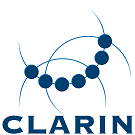Grammar
Phonology, Morphology and Syntax: Taalportaal
Many aspects of Dutch linguistics are described in the Taalportaal website
Taalportaal (or Language Portal) is an interactive knowledge base about Dutch, Frisian and Afrikaans. It provides access to a comprehensive and authoritative scientific grammar for these three languages. Up to now there has been no comprehensive scientifically-based description of the grammars of Dutch, Frisian and Afrikaans. This is a serious shortcoming, considering that
- language is seen as an important part of cultural identity and cultural heritage
- a large number of people learn these languages as a second language
- educated speakers frequently lack grammatical knowledge of their native language
- Dutch and Afrikaans are an important object of study in linguistic theory and related fields of research
Taalportaal fills this gap by providing a thorough description of the phonology, morphology and syntax of the three languages.
Morphosyntax
- MIMORE: Microcomparative Morphosyntax Research Tool
The MIMORE tool enables researchers to investigate morphosyntactic variation in the Dutch dialects by searching three related databases with a common on-line search engine. The search results can be visualized on geographic maps and exported for statistical analysis. The three databases involved are DynaSAND (the dynamic syntactic atlas of the Dutch dialects), DiDDD (Diversity in Dutch DP Design) and GTRP (Goeman, Taeldeman, van Reenen Project).
This site gives access to the data that was used for the Morphological Atlas of the Dutch Dialects.
Syntactic Atlas of the Dutch dialects (SAND)
The Dynamic Syntactic Atlas of the Dutch dialects (DynaSAND) is an on-line tool for dialect syntax research. DynaSAND consists of a database, a search engine, a cartographic component and a bibliography.
Dutch descriptive grammar: e-ANS (in Dutch)
The General Dutch Grammar, or ANS (Algemene Nederlandse Spraakkunst), is the go-to reference grammar for the Dutch language. It is the most extensive description of the grammatical aspects of contemporary Dutch. Its target users are both native speakers and foreign speakers learning Dutch. The ANS was born out of a Belgian-Dutch cooperation and was first printed in 1984. The second and revised 1997 edition was digitized, resulting in the e-ANS.
Lately, the Dutch Language Institute (INT) has been working on a new, user-friendly website for the ANS, while work was started on the revision of its contents by the Leiden University Center for Linguistics (LUCL), Ghent University, KU Leuven and Radboud University Nijmegen.
From 2020 onwards, the further revision of the contents will also be coordinated by the INT.
- e-ANS website
Grambank
Linguistic properties of Dutch are also included in Grambank.
